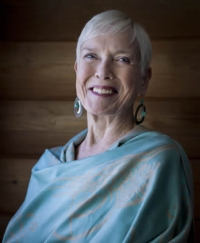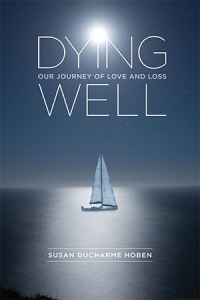What we can learn from how Charles Krauthammer has chosen to die: Guest opinion
What we can learn from how Charles Krauthammer has chosen to die: Guest opinion
Charles Krauthammer, the Pulitzer Prize winning journalist, has never been one to mince words, but his recent farewell note to readers is stunning. "This is the final verdict. My fight is over."
After 10 months of silence, spent battling cancer and enduring painful and difficult treatments, Krauthammer has decided that this particular fight is over. His courageous battle with cancer has led him to an equally courageous acceptance that he has only a few weeks to live, and a decision to publicly say goodbye.
When I read Krauthammer's open letter, I was transported back in time to 2009 when my husband Bruce was in a very similar situation. After being diagnosed with a fast-growing, late stage cancer of the esophagus and enduring six months of chemotherapy and prophylactic cranial irradiation, we too believed he was in remission only to have our hopes dashed two months later when the tumors reappeared. In a "Dear Colleagues" note he posted on the Connecticut Chapter of the American Planning Association listserv, an electronic bulletin board with close to 500 subscribers, he briefly recounted the events leading up to his decision to stop treatment, ending with:
So there you have it! I am in the third act of a play called life. The good news is that I get to say goodbye and have experienced an out-pouring of love and concern and care. Please feel free to call me, email me, or visit me.
The responses flooded in, from people who knew him and had worked with him, and from people who barely knew him or had never met him in person but benefited from his experience and knowledge. What I learned from the hundreds of emails was that in addition to being loved and respected for his professional accomplishments, his colleagues admired him for how he chose to face death. By inviting colleagues, friends and family to share his end-of-life journey, he had shown us all that death doesn't have to be traumatic, that while we may not be able to control the cause of death, we do have control over many aspects of how we die, and that there are steps we can take to achieve the end of life experience we want.
It's important for us to have role models for dying well. Observing the words and actions of those dealing with a terminal prognosis, whether we know them personally or only as figures in the public spotlight, can be an emotionally powerful way to gain new insights. Fear prevents us from even thinking about death, let alone talking about it or planning for it. The more we know about other people's end-of-life journeys the less we will fear our own and perhaps, with each new experience shared, we will become more comfortable with the inevitable.
In the last few months, several public figures have disclosed they were dying. A few days before she died, Barbara Bush announced through a family spokesman that she had chosen to have comfort care rather than additional medical treatment. Now Krauthammer has gone public with his prognosis, telling us he has stopped treatment and showing us that he is using his remaining time to reflect on his life, say good-bye and spend quality time with loved ones.
Public figures can shine a bright light on important issues. But role models don't have to be famous. They can be a relative, a friend, a neighbor, a colleague. Let's all become part of this growing national dialog on how we die. Consider sharing your end-of-life journey, or that of a loved one, as I have done.
Although being in the public spotlight can magnify one's impact, we all have the opportunity to change someone's life -- and death.
-- Susan Ducharme Hoben is an advocate for making positive end-of-life decisions and the author of a memoir, Dying Well: Our Journey of Love and Loss (March 2018).

